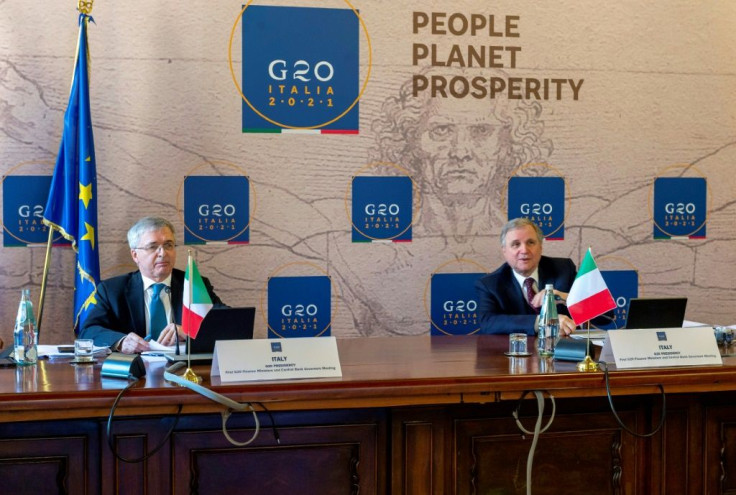Help For Low-income Nations Tops Agenda At G20 Meeting
G20 finance ministers and central bankers began a videoconference Wednesday to coordinate post-pandemic recovery plans, increase help for the poorest Covid-hit countries and discuss a US-backed global minimum corporate tax.
The meeting hosted by current G20 chair Italy comes a day after the International Monetary Fund forecast faster than expected global economic growth this year, of 6.0 percent, after the coronavirus pandemic in 2020 caused the worst peacetime downturn since the Great Depression.
But developing countries are lagging behind, and US Treasury Secretary Janet Yellen has warned of the risk that the pandemic reverses years of progress in fighting poverty and closing the gap between poor and rich nations.
Top of the agenda of Wednesday's meeting of the Group of 20 most powerful nations is whether to extend a moratorium on debt interest payments for the poorest countries, which is currently set to expire on June 30.
World Bank President David Malpass said this week he expects the G20 to prolong the moratorium, which was introduced in April last year and extended in October, one last time until the end of 2021.
Its impact has been relatively limited, however, with just 46 out of 73 eligible countries having asked for and obtained a delay on payments totalling $5.7 billion, according to the latest official figures.
The G20 is also expected to support the IMF's plan to boost its reserve offerings, increasing its allocation of special drawing rights (SDR) by $650 billion, to help impoverished countries.

And the issue of a global minimum tax rate for corporations is also up for discussion after the new US administration under President Joe Biden threw its weight behind the idea.
The reform, supported by the IMF and by major economies including France and Germany, is aimed at ending tax competition between countries and the use of tax havens by companies.
Yellen said this week she would push for agreement among the G20. The group could unveil a proposal by July, with estimates of the tax rate currently ranging between 12.5 percent and 21 percent.
The international reform would be comprised of two components: the minimum tax rate and the establishment of a system to modulate corporate taxes based on profits in each country, regardless of where they are headquartered -- which would likely impact tech giants the most.
At their last meeting in February, G20 finance ministers moved closer towards an agreement on a global digital tax targeting giants such as Amazon, Facebook and Google, after the US dropped a proposal viewed as a key obstacle.
© Copyright AFP 2024. All rights reserved.







